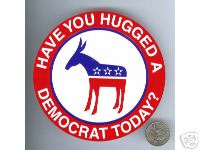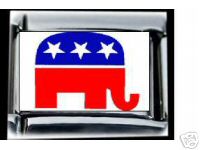Increasing the Tax Base - Group 1
This first group is right under your nose. Pick up a newspaper, turn on the radio or TV and you’ll hear about this group. You may have had a close encounter with this group. I’m talking about the criminal element.
Very few criminals pay income tax. They don’t have traditional jobs. What are they going to put on a tax form for “employer”? The names of their victims? Too cumbersome and quite often, they have no idea of what their victim’s names are and, get this! They don’t care! Or if they sell drugs, maybe they should put the name of their supplier? Oh, that might be bad for business, not to mention their lives. And since criminal activities are illegal, it might not be a good idea to file taxes in the first place. Somebody might start asking questions.
The criminal who actually pays an income tax does so because they have an income that covers their illegal activity. Some criminals run an automotive business of some sort so that they can funnel stolen cars or car parts through the business (chop shops). They may pay taxes on the their income from the business, but not on the stolen cars or parts. Someone else might have a business where they sell property stolen by other people (fences). Maybe they have a business that covers their drug sales. I used to live next door to a beauty salon that had people coming and going at 1 and 2 in the morning. I knew something was going on, but had no personal knowledge of what was happening, but my first thought was drugs. Turned out I was right. Adult entertainment facilities (strip joints) are known for their drug sales. Do you think the owners claim the sale of drugs on their income tax forms?
Like the wage earner (you and me), the criminal element has to buy certain essential items like food and clothing. No matter whether upright citizen or criminal we also buy other things, furniture, electronics, entertainment such as CD’s, DVD’s, Playstations and games, jewelry, cars, vacations, and houses. The difference may only lie in the cost of the item. The criminal, unless his (or her) money is spent on drugs, always seems to have more “stuff” than I can afford. To be fair, there are an awful lot of criminals out there who don’t rob and steal for just the money, or for the thrill of it. They don’t steal so they can buy “stuff”. They steal for drug money.
The reason why they steal doesn’t really make a difference. They don’t file an income tax. They still have to buy clothing and food and the same things you and I buy. By instituting a consumption tax, they will pay the same taxes that you and I pay.
Very few criminals pay income tax. They don’t have traditional jobs. What are they going to put on a tax form for “employer”? The names of their victims? Too cumbersome and quite often, they have no idea of what their victim’s names are and, get this! They don’t care! Or if they sell drugs, maybe they should put the name of their supplier? Oh, that might be bad for business, not to mention their lives. And since criminal activities are illegal, it might not be a good idea to file taxes in the first place. Somebody might start asking questions.
The criminal who actually pays an income tax does so because they have an income that covers their illegal activity. Some criminals run an automotive business of some sort so that they can funnel stolen cars or car parts through the business (chop shops). They may pay taxes on the their income from the business, but not on the stolen cars or parts. Someone else might have a business where they sell property stolen by other people (fences). Maybe they have a business that covers their drug sales. I used to live next door to a beauty salon that had people coming and going at 1 and 2 in the morning. I knew something was going on, but had no personal knowledge of what was happening, but my first thought was drugs. Turned out I was right. Adult entertainment facilities (strip joints) are known for their drug sales. Do you think the owners claim the sale of drugs on their income tax forms?
Like the wage earner (you and me), the criminal element has to buy certain essential items like food and clothing. No matter whether upright citizen or criminal we also buy other things, furniture, electronics, entertainment such as CD’s, DVD’s, Playstations and games, jewelry, cars, vacations, and houses. The difference may only lie in the cost of the item. The criminal, unless his (or her) money is spent on drugs, always seems to have more “stuff” than I can afford. To be fair, there are an awful lot of criminals out there who don’t rob and steal for just the money, or for the thrill of it. They don’t steal so they can buy “stuff”. They steal for drug money.
The reason why they steal doesn’t really make a difference. They don’t file an income tax. They still have to buy clothing and food and the same things you and I buy. By instituting a consumption tax, they will pay the same taxes that you and I pay.
Read More Here!



